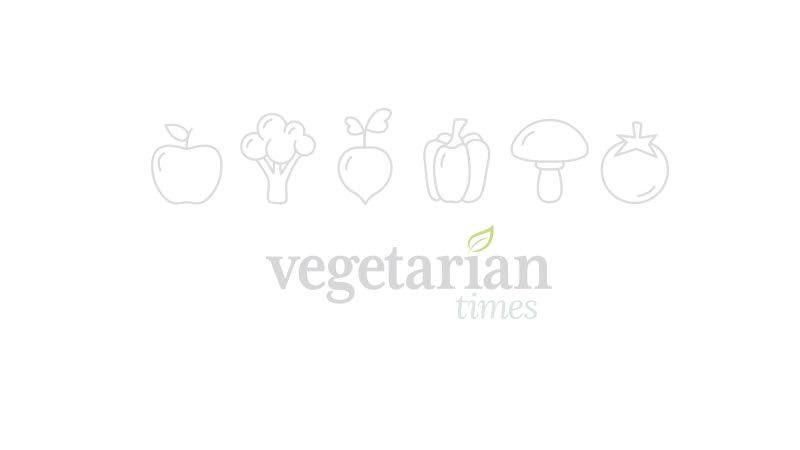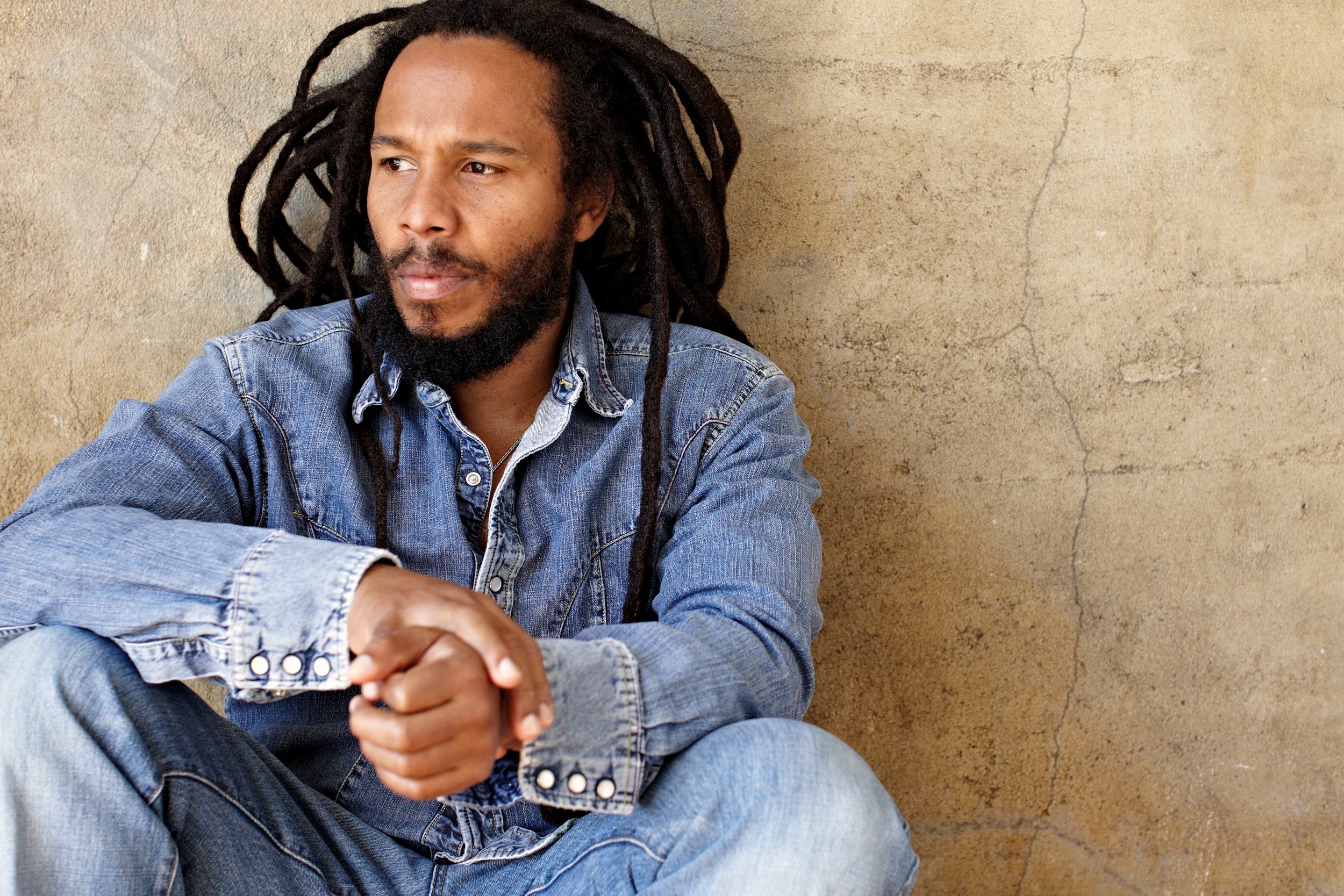One on One with Ziggy Marley


February is the month of love. Who better to spread this sentiment than five-time Grammmy winning reggae star Ziggy Marley, son of the legendary Bob Marley? From his rousing rendition of his father’s anthem “Could You Be Loved?” at the 2013 Grammy Awards to his just-published chidlrens’ e-bookI Love You Too!, Ziggy’s been busy bringing a message of love to the people. And, that’s not all he’s been up to. He recently released the acclaimed documentary Marley, a film he executive produced on the life and music of his legendary father, a companion soundtrack, a new live album—and even launched his very own line of flavored coconut oils and hemp seed snacks, Ziggy Marley Organics. Below, Ziggy takes a time-out to share his affinity for nutrient-dense coconuts and hemp seeds, his stance on GMO-foods and agricultural hemp, his signature breakfast, and three wise words: “Love one another.”
Of all the foods on Earth, why did you choose to work with coconuts and hemp seeds to create your product line?
I grew up with coconut in Jamaica: coconut water, coconut jelly, and a lot of coconut and chili pepper. You know it’s funny, in Jamaica, we eat the food that we grow up on, traditionally, and we don’t really know all of the intricate benefits, but they’re all there. Now we come to find out that coconut oil is really good for you, good for your skin and everything, but we’ve been doing these things as part of our culture naturally without even getting the PR out about it. So that’s why I work with coconuts, because coconuts are good for you, and it’s a food that I grew up with and a flavor that I know.
And hemp seeds are something that I have been an expert in for awhile. I grew up around the plant—ganja. We use the leaves as tea and as medicine for insect bites and stuff like that in Jamaica. In fact, I got educated about how nutritious the seeds are. And I want to make people know, and I want to put it out there as much as I can. Because if there is something good out there, then we share it.
I love that the whole product line is organic and GMO-free. California’s Prop 37—which would have required the mandatory labeling of GMO foods—was rejected last November, but the “right to know” movement is still very much alive and thriving in states such as Washington, Oregon, and New Mexico. What’s your stance on the mandatory labeling of GMO foods?
I look at it simply from reality. I watch movies. I’m a movie fan. So I don’t know who regulated that world, but when I watched movies, a DVD or video, it used to say, and I think it was mandatory that it say, this movie has been formatted to fit, has been changed or altered to fit, your screen. Even when I’m on an airplane, and I watch a movie, it says that. So somebody decided, you know what, it is very important that the consumers know that the movie has been modified, exactly, those are their words, this movie has been modified to fit your screen. So somebody made that law, that if you’re going to watch a movie, and it’s been modified, people should know. So it’s just ironic that they cannot say that for food that you’re putting in your body.
That’s how I look at it. It’s a simple thing. When you go to a gas station, you can tell what type of gas you’re putting in you car. That the government doesn’t make it mandatory to tell us if the food has been modified, or what exactly is in our food, makes no sense. It makes no common sense. But everything good, you have to fight for it, you know? Even on a contract, even on the TV under an ad, you see the fine print down at the bottom that you hardly notice, even that. Give some fine print or something.
As a business owner, how does being committed to organic and GMO-free affect the bottom line or business operations?
Ah you know, I’m not really a business man. We’ll do what is right, and if it make good business sense, then OK. If I can’t make business from what is right, then I won’t get into that business, basically.
It’s no secret that hemp has a bad rep in the US. Despite the fact that it’s a nutritional powerhouse and contains no THC, it’s still illegal to grow agricultural hemp in the US. What will it take to change this?
It will take the same thing that it took to change laws in Washington and Colorado. And I wonder why hemp wasn’t a part of that with marijuana. If it’s legal to smoke marijuana, then it should be legal to grow hemp. It takes that effort and that will. If those two states are the leaders, then hemp should be the next thing being grown in those states.
So you think agricultural hemp should be grouped with marijuana?
Yeah. The more together it is, the stronger it is. Divided we fall, united we stand, you know what I’m saying? The plant: the plant is a plant. The whole thing needs to be free, not just one side of it or one part of it. That’s the way I see it. Medical marijuana has been doing good legally in a lot of states in America, so I don’t see why hemp is not.
What was the most rewarding aspect of working on the Marley film and companion soundtrack?
I think my greatest thing from the experience is: Can I get a deeper understanding of my father, and the life? And reconnecting with that history.
Were you changed at all by the project?
No, not changed. It gave me a broader point a view, just a more open point of view, and more understanding and knowledge about my father, especially during the days when he was in Germany, days when we children were not around. It gave me a more emotional connection too.
I hear you are a phenomenal chef. What’s your signature dish?
You know what’s my signature dish now? It’s oatmeal. I add flax seeds, golden berries, walnuts, and fruits—bananas and blueberries. My family likes it because I make it kind of special.
Is there anything else that you would like to get out there to world—to the vegetarians and vegans out there—or just to the world, any other comments?
Love one another.
ABOUT JOLIA SIDONA ALLEN

Jolia Sidona Allen is online managing editor for Vegetarian Times. She’s a life-long vegetarian, writer, editor, and lover of lentils and green smoothies. Outside the VT office, she can be found frequenting SoCal farmers’ markets and veg restaurants, or getting her daily dose of Vitamin D (and some sand in her toes) under the warm California sun.